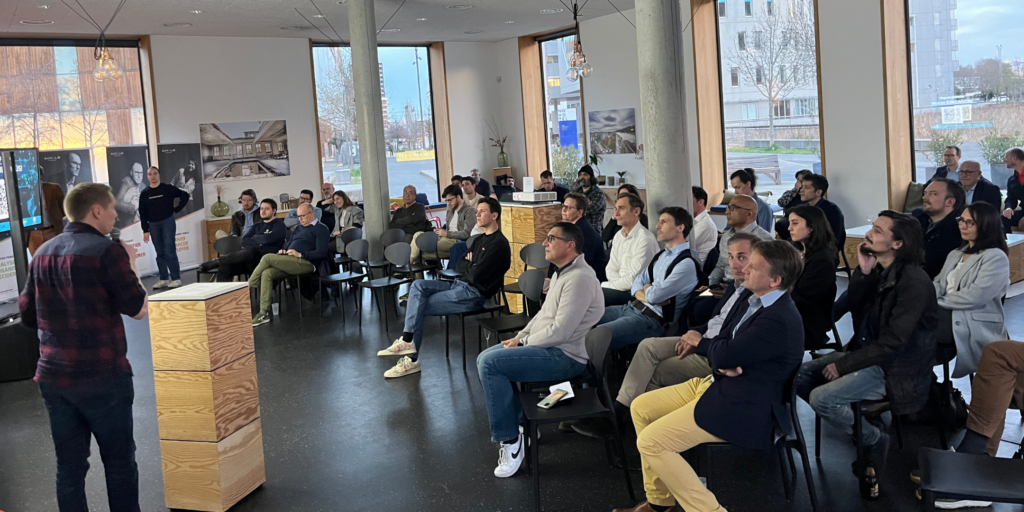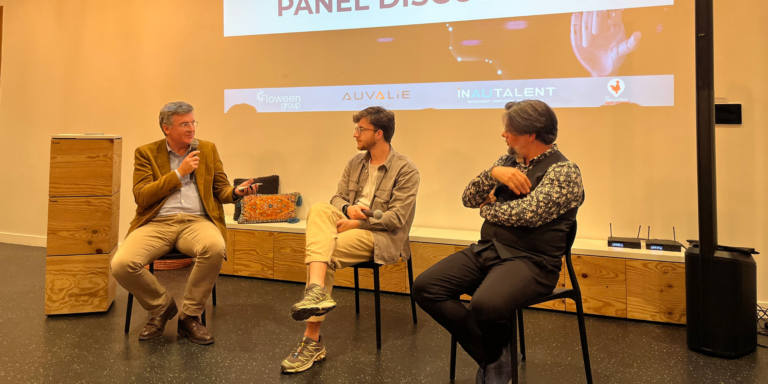
We’re excited to have taken part in the second edition of Startup&Angels in Lyon. Five startups showcased their AI-driven solutions, aimed at boosting business efficiency and making employees’ tasks easier. Later, a panel of AI experts and investors discussed the role of AI in companies, with a special emphasis on its impact on customer service.
We wanted to highlight the main points of this discussion in an article, so here we are!

The use of AI in customer service is becoming increasingly important!
Right now, online shopping makes up 12% of France’s economy, and that number is expected to grow as more people shop online. But online shopping means businesses have to deal with a lot more customer questions and issues compared to traditional shopping, like 5 to 10 times more! So, if France gets as big into online shopping as England, which is at 30%, customer service centers will have to start using AI. It’s just not possible to hire enough people quickly, especially when the industry is already under pressure.
But there are some problems with getting AI into the workplace.
How do employees fit into this AI world?
Many people worry that AI might take their jobs, which makes it hard for companies to introduce AI. Bosses might want to use it, but workers often aren’t so sure. This is the primary barrier to implementing AI in businesses. Even though lots of people use AI in their own lives, they’re more nervous about using it at work because it means admitting that AI can do or help with everyday tasks. Some people even talk about the “Terminator syndrome,” where they’re afraid AI might start making decisions on its own that they don’t want it to.
How do we help AI fit in at work?
To get over this challenge, companies need to show their teams that AI is there to help them, not replace them. It’s like having an extra helper, not a substitute. AI can understand what problems customers are having, but it can’t replace the personal touch of a human. Its job is to deal with technical stuff, while the human worker keeps up the friendly relationship with the customer. We need to figure out what tasks AI can’t do so we can make sure it’s used properly for the tasks it can handle. In the end, AI works best when it’s working alongside humans, helping them do their jobs better.
What's next for AI in customer service?
“The future is about people taking back control of customer relationships.”
But here’s the thing about AI: it’s going to make customers more demanding. They’ll expect faster and better service, and that’s going to become the norm. So, the challenge for humans will be not just meeting these new expectations, but beating them to avoid being replaced by AI. In the future, customer service jobs will need people who can connect emotionally with customers, something AI just can’t do. And on top of that, people will also need technical skills so that AI can’t completely take over human interactions.
